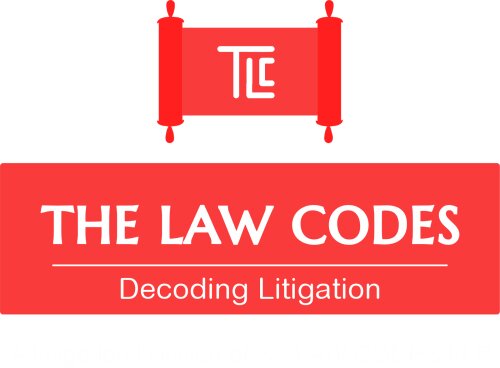Best Military Law Lawyers in Chandigarh
Share your needs with us, get contacted by law firms.
Free. Takes 2 min.
List of the best lawyers in Chandigarh, India
About Military Law in Chandigarh, India
Military Law in Chandigarh, India, revolves around the legal guidelines and statutes that apply specifically to Armed Forces personnel. This field of law addresses matters such as military offenses, court-martials, and the disciplinary systems within the Indian Armed Forces. Chandigarh, being a Union Territory and capital of two states, has significant military presence, including regional defense establishments, making it an important hub for Military Law practice. The team of legal experts in this region often deal with cases related to the Army, Navy, and Air Force, ensuring compliance with the Armed Forces Acts, military justice, and maintaining discipline within the service.
Why You May Need a Lawyer
Individuals connected to the military may require legal assistance in diverse scenarios, including:
- Facing charges under the Armed Forces Tribunal Act or other military-specific statutes.
- Seeking redressal for grievances related to service conditions, pension, or retirement benefits.
- Needing representation in court-martial proceedings.
- Navigating the complexities of legal issues arising from deployment or military engagements.
- Dealing with issues related to military family law, including spousal and child support during deployments.
Local Laws Overview
The Military Law applicable in Chandigarh is influenced by several statutory regulations and bodies. Key aspects include:
- The Army Act, 1950: Governs the Indian Army, detailing offenses and punishments in Military Law.
- The Navy Act, 1957: Regulates all aspects of Navy personnel conduct and legal matters.
- The Air Force Act, 1950: Directs jurisdiction over legal issues related to the Air Force.
- Armed Forces Tribunal Act, 2007: Facilitates Armed Forces Tribunal to handle disputes related to service matters.
- Regional legal developments that affect military cantonments and related establishments in and around Chandigarh.
Frequently Asked Questions
1. What is Military Law?
Military Law refers to a legal system governing armed forces personnel, addressing discipline, court-martials, and legal proceedings within the military context.
2. What are the common legal issues faced by military personnel?
The issues range from disciplinary actions, service-related disputes, grievances, pension claims, promotion disagreements, and deployment-related legal complications.
3. How does one file a case in the Armed Forces Tribunal?
You need to submit an application along with all relevant documents to the Regional Bench of the Armed Forces Tribunal catering to Chandigarh.
4. Can a civilian lawyer represent me in military courts?
Yes, civilian lawyers specializing in Military Law can represent individuals in military courts and tribunals.
5. What is a court-martial?
A court-martial is a military court that conducts trials for military personnel accused of offenses against military law.
6. Are the rulings of the Armed Forces Tribunal final?
No, the rulings can be appealed to the Supreme Court of India, subject to certain conditions.
7. How can military personnel seek redress for service grievances?
Military personnel can approach the Armed Forces Tribunal or use internal grievance redressal mechanisms available within the defence services.
8. What laws protect the rights of military families?
Various provisions within the Armed Forces Acts and welfare schemes by the Ministry of Defence safeguard military family rights.
9. Are military trials different from civilian trials?
Yes, military trials follow unique procedures set by military law and occur in military courts involving military judges and personnel.
10. How long does it take to resolve a case in military law?
The timeline can vary, dependent on the case's complexity, jurisdiction, and court resources.
Additional Resources
For those seeking further assistance or resources, consider contacting:
- Ministry of Defence: Provides comprehensive information and assistance on military law matters.
- Armed Forces Tribunal, Chandigarh Bench: Handles and provides information on military service matters.
- Veterans Associations: Offer support and advice to retired military personnel seeking legal guidance.
- Legal Aid Clinics: Found in law colleges or NGOs offering free advice on military law cases.
Next Steps
If you require legal assistance in Military Law, consider the following steps:
- Seek consultation with lawyers specializing in Military Law to understand your legal standing.
- Gather all necessary documents and evidence related to your case.
- File an application with the Armed Forces Tribunal if needed, adhering to the prescribed format.
- Stay informed about legal proceedings and update your lawyer with new information affecting your case.
- Engage with support networks for military personnel and their families for additional guidance.
Lawzana helps you find the best lawyers and law firms in Chandigarh through a curated and pre-screened list of qualified legal professionals. Our platform offers rankings and detailed profiles of attorneys and law firms, allowing you to compare based on practice areas, including Military Law, experience, and client feedback.
Each profile includes a description of the firm's areas of practice, client reviews, team members and partners, year of establishment, spoken languages, office locations, contact information, social media presence, and any published articles or resources. Most firms on our platform speak English and are experienced in both local and international legal matters.
Get a quote from top-rated law firms in Chandigarh, India — quickly, securely, and without unnecessary hassle.
Disclaimer:
The information provided on this page is for general informational purposes only and does not constitute legal advice. While we strive to ensure the accuracy and relevance of the content, legal information may change over time, and interpretations of the law can vary. You should always consult with a qualified legal professional for advice specific to your situation.
We disclaim all liability for actions taken or not taken based on the content of this page. If you believe any information is incorrect or outdated, please contact us, and we will review and update it where appropriate.












